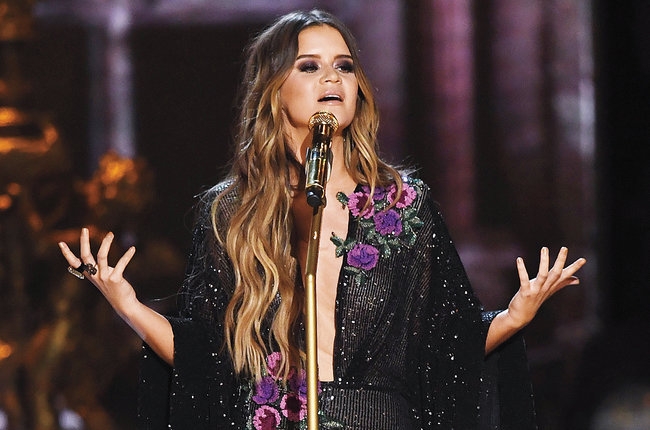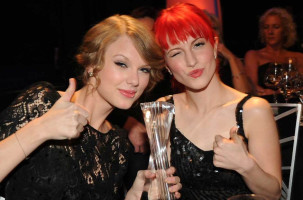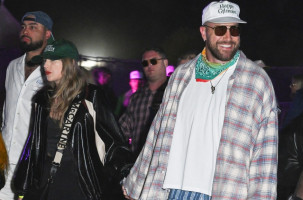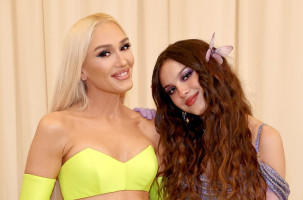It has been almost two years since the controversy that came to be known as Tomatogate riled up the country music community, particularly its women. But in the last two weeks, separate comments from two female country artists have returned the disparity in the number of successful male vs. female country artists to the forefront. And despite how much focus there has been on that gender imbalance in recent years, the prevailing opinion on Music Row seems to be that very little has changed.
Jana Kramer got people talking with an apparently well-meaning (if factually faulty) April 19 tweet in which she wrote, “Love Triangle by @RaeLynn sold more than the last two songs that went No. 1, but yet struggled on charts. Why? Wait let me guess #girl #whattheFK.” A subsequent article on NASHCountryDaily.com disputed her facts, pointing out that one of the two most recent No. 1s prior to Kramer’s post was actually from another woman, Lauren Alaina. (Kramer's photo was recently removed from the artist roster on the Warner Music Nashville site.)
A week later, actress Lena Dunham’s LennyLetter site posted an article penned by Maren Morris, who targeted what she views as limitations of the subject matter female country artists can cover in songs they hope will become hits, saying they have to be “down the middle and noncontroversial.”
“The frustration I’ve had with the perspective of women in country music … is that you either have to sing about being scorned by a lover or sing about thinking a boy is cute and wanting him to notice you,” wrote Morris. “That’s about as edgy as you can get.”
Morris also referenced Tomatogate, which erupted in 2015 when a country radio consultant publicly stated that his research indicated that the most successfully programmed country radio stations were those that used female artists as the tomato garnish on a salad largely comprising “lettuce,” his word for male acts. He also cautioned that stations should never play two female acts back to back, for fear of tune-out. In her article, Morris wrote about “being in a landscape where the girls in my format were referred to as ‘the tomatoes of a salad,’ meaning just an ‘accessory’ … Hard to believe, right?” And in an apparent reference to an incident she experienced, Morris also described “the guy who drunkenly slurs to me at my meet-and-greet, ‘Listen, Maren, girls can’t successfully release ballads to country radio.’ ”
Months before Tomatogate, the Nashville-based group Change the Conversation had formed and began meeting regularly to offer research, networking and support for the women of Music Row, particularly its artists. A year before that, in 2014, the weekly Nashville live performance series Song Suffragettes was launched to provide a place for new female singer-songwriters to play.
Despite those initiatives, the top 30 on the current Billboard Country Airplay chart includes just five females: one solo (Kelsea Ballerini), three in duets with men (Morris, Carrie Underwood and Faith Hill) and Lady Antebellum (a trio with one female member). When the Academy of Country Music Awards nominees were announced in February, the industry was able to scrape together only four qualifying nominees in the new female category on the second-round ballot. By contrast, there were 13 qualifying new male vocalists vying for five spots.
That’s not to say there hasn’t been progress. A&R consultant and Red Light-affiliated artist manager Tracy Gershon, a co-founder of Change the Conversation, says she has seen slightly more women signed to label contracts since the group began. And while he doesn’t take credit for orchestrating any deals, Song Suffragettes founder Todd Cassetty, owner of Cassetty Entertainment, provided Billboard with a list of 20 female artist-songwriters that have scored publishing deals and six that have landed recording contracts since first performing on Song Suffragettes.
Still, says Cassetty, “From a macro perspective, things aren’t getting better” for women artists. “The dangerous part is there’s a false belief that it is because Maren and Kelsea got nominated for Grammys for best new artist. Everybody in town seems to be quick to pat themselves on the back because of Maren’s and Kelsea’s newish success, but the reality is when you look at the weekly radio chart, female-only music is only yielding 8 percent to 12 percent of the chart [on average]. I get frustrated because I hear a lot of people saying it’s getting better, but the numbers are still tragic.”
Gershon is only slightly more optimistic. “It’s getting a teeny bit better,” she says. “I do feel it’s loosened up at labels. They’re realizing that women are making great music, and they want to be part of [it].” But she notes there is still a very lopsided limit to how many females Nashville labels will have on their rosters.
Some radio programmers are also frustrated by the gender imbalance. With fewer female artists coming their way from labels, they say radio simply has fewer opportunities to program women. Yet labels have seen female artist after female artist struggle at radio, so they’re signing and promoting accordingly.
“For every 10 male artists that show up for a radio tour, there is one woman,” says Sue Wilson, VP operations for Rubber City Radio Group and PD of WQMX Akron, Ohio, who points to one Nashville label group with a fairly typical roster. It has 18 acts currently signed, but only two are solo females, one is a female group, and another is a male-female duo.
“There seems to be no clear, easy answer or solution to the problem of the lack of women on the air on country radio,” says a frustrated Wilson, who calls it “an issue the country format can’t seem to solve … It is going to take a concerted effort by label execs to sign more women and, once signed, make sure the best songs are being released by these artists and then get behind them.”
Nashville music publishers also remain guarded. “When I am looking at the landscape and pitch songs, the reality is that there are only four or five females being played at radio and charting,” says Ree Guyer, president/owner of Wrensong Publishing. “My odds are better when I’m pitching male songs. Even our great female writers are mostly writing male songs just because [they] have a better shot at getting cuts.”
Little Extra Music president/partner Lisa Ramsey-Perkins also feels “a very large void where female country artists are concerned” when she’s pitching. “It’s hard to get songs cut, whether male or female. But there is still a disproportionate amount of male artists … so a lot less places to go with your female songs.”
But both publishers have cause for optimism. “In the last year or so, I’ve been blown away with some of the new female artists,” says Ramsey-Perkins. “It makes me hopeful that more of them will break through.” Guyer is similarly watching artists like Alaina, RaeLynn, Carly Pearce and Cassadee Pope with hope and interest, along with Ballerini and Morris. “I see in our community many young female artists coming to Nashville trying to make a difference,” she says, “and the tide seems to be shifting a little.”
Gershon thinks that at least one positive development has come out of Tomatogate. Because of it, she says, “Women are supporting each other more than they ever have and being very vocal. Maybe it’s just that we’ve embarrassed people, but I see a huge call to arms and a swell of support from females. They’ve realized they can move the dial.
“We have a long way to go, but nobody expected this to happen overnight,” adds Gershon. “We just keep fighting the fight.”








